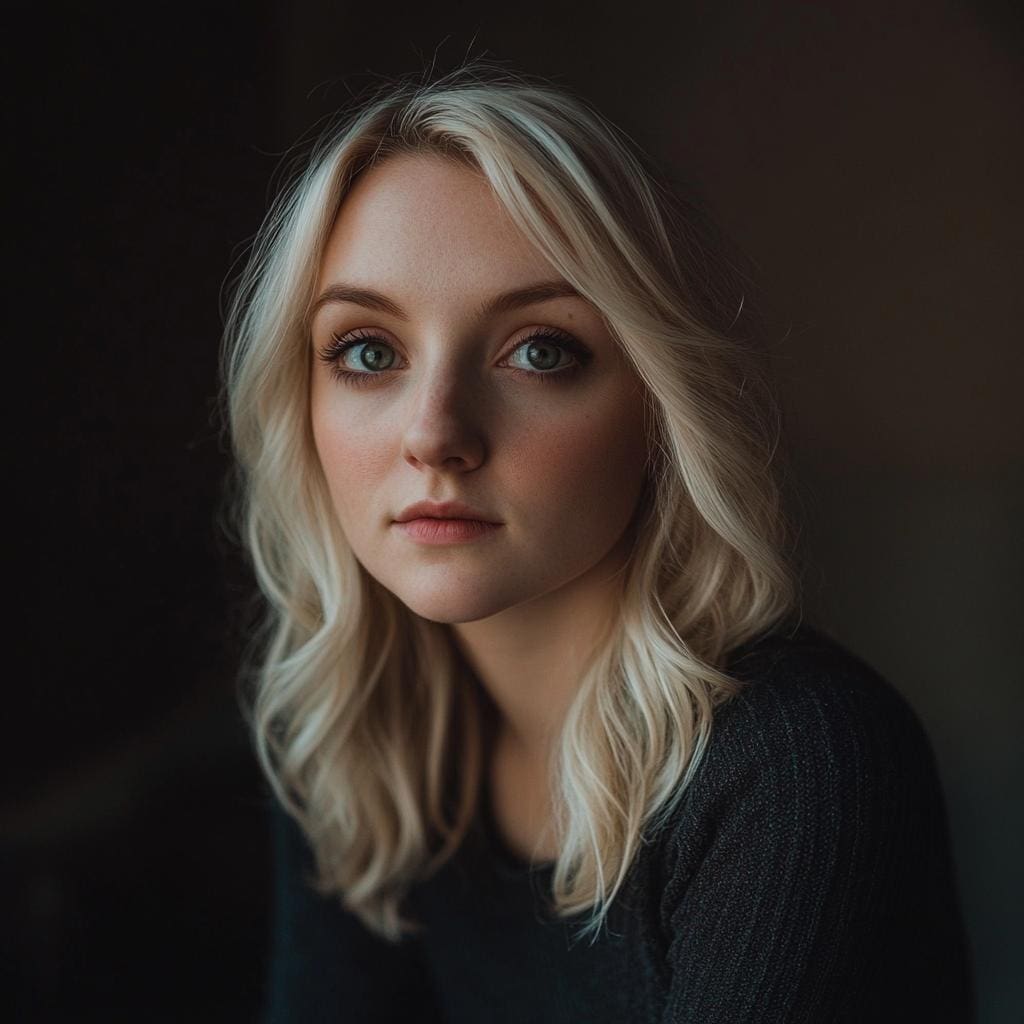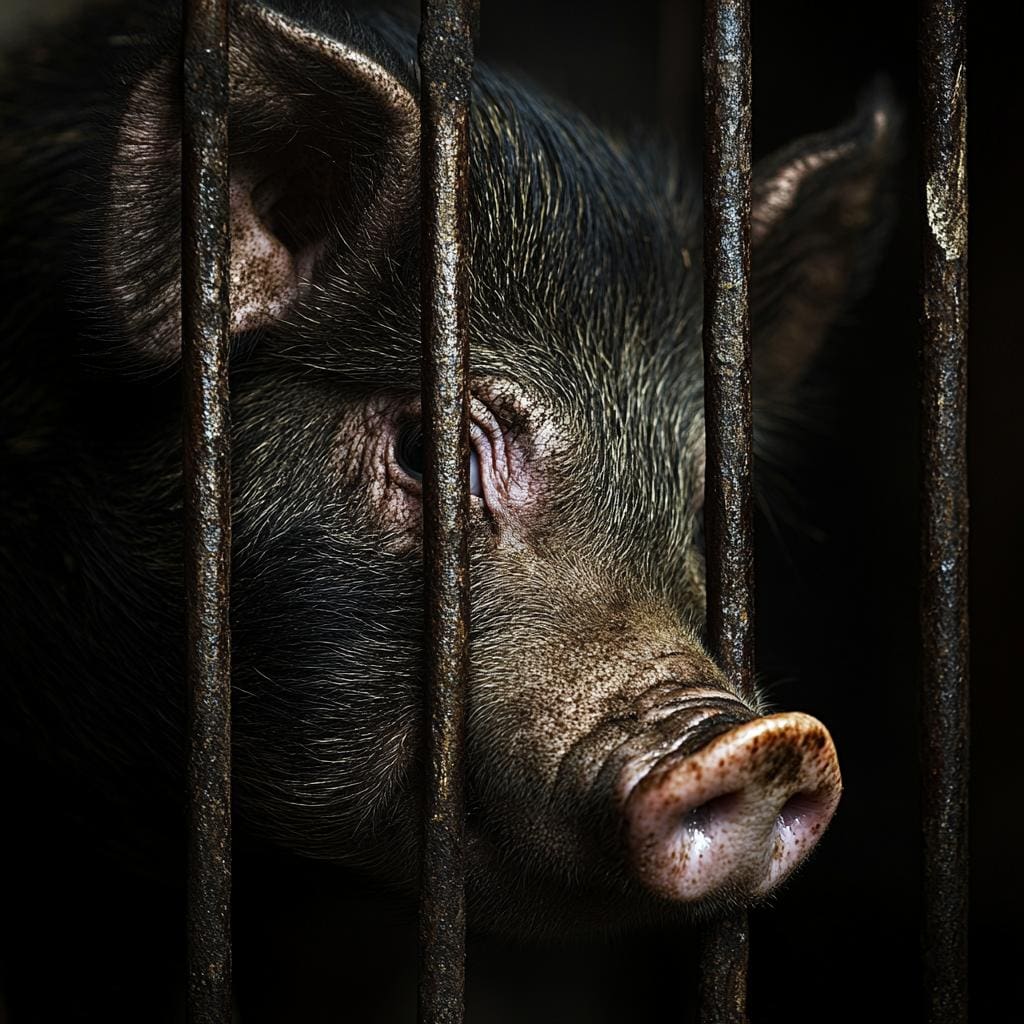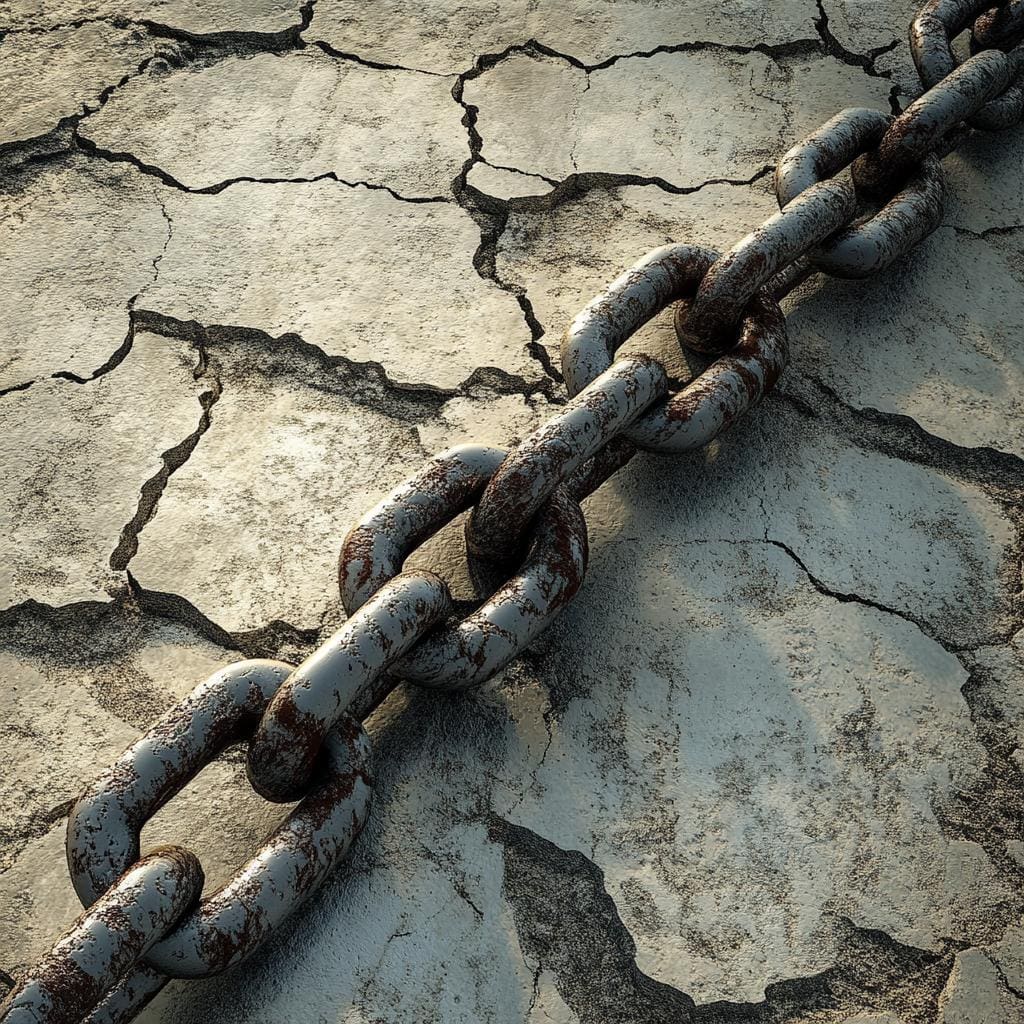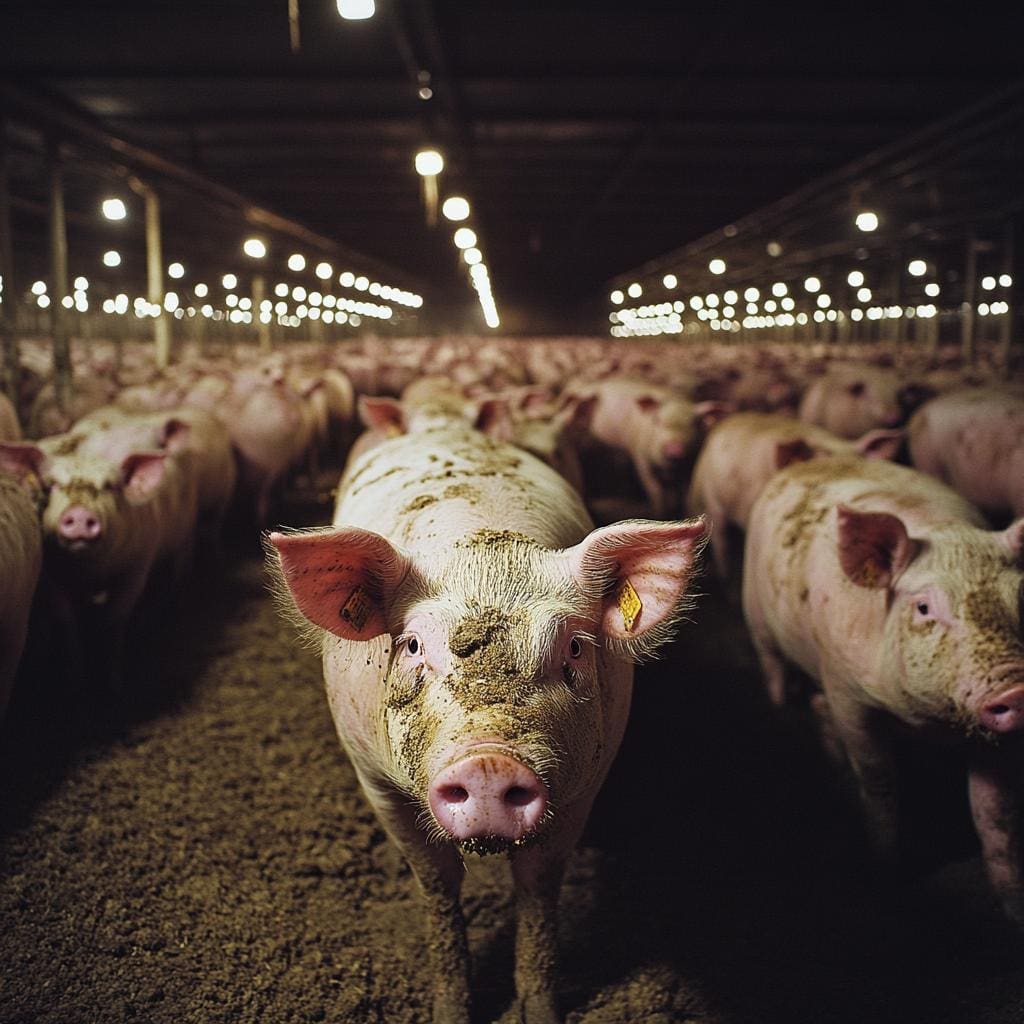Actress and animal rights advocate Evanna Lynch delivers a deeply emotional and thought-provoking response to the virtual reality film *iAnimal*, which unveils the grim realities of factory farming. In a candid YouTube video, she confronts the hidden cruelty endured by animals, drawing parallels between their desperate plight and her own visceral reaction. Lynch’s heartfelt plea challenges viewers to break free from passive complicity, urging them to take ownership of their consumer choices and recognize the moral weight behind every dollar spent. Her powerful reflections shed light on the urgent need for transparency, empathy, and accountability in creating a more compassionate world
In an emotionally charged YouTube video, actress and animal rights activist Evanna Lynch shares her visceral reaction after watching “iAnimal”—a virtual reality experience that exposes the harrowing reality of factory farming. With her raw and unfiltered expressions, Evanna Lynch takes viewers on a journey of empathy and self-introspection as she grapples with the heart-wrenching scenes unfolding before her eyes.
How does witnessing such brutal treatment of animals affect an individual, especially one so deeply embedded in advocacy? What moral responsibilities do we bear when our dollars support an industry shrouded in cruelty? Join us as we dive into Evanna Lynch’s poignant reflections, dissecting the emotional and ethical implications of “iAnimal” and the broader conversation it ignites about our collective consumer choices.
Evanna Lynch’s Raw Emotion: A Personal Revelation

Oh God, okay. Oh, God, no. Help. That was awful. I just wanted to make myself as small as possible.
And I was thinking that must be how the animals feel—they just want to hide, but there’s not any corner of comfort or peace in any part of their lives. Oh God, it’s so cruel and so horrific. If you’re spending a few dollars to support this, it’s just not worth it.
You’re actually paying to support this. You should know what your money is going through. You should take ownership of what you’re doing. I think it’s the passivity of most people that makes this okay, that makes it go on and the fact that it’s all behind closed walls.
| Emotion | Perception | Action |
| Raw | No comfort or peace | Take ownership |
| Horrific | Cruelty | Know where your money goes |
| Desperate | Behind closed walls | End passivity |
Understanding the Silent Suffering of Animals

Evanna Lynch’s poignant reaction to watching iAnimal offers a raw and visceral insight into the cruel reality faced by animals. “Oh God, okay oh God no help, that was awful,” she expresses, embodying a profound sense of helplessness. Her emotional response, “I just wanted to like make myself as small as possible,” mirrors the instinctual urge animals feel to seek refuge in an environment where solace is non-existent. The compassionate reflection, ”there’s not any corner of comfort or peace in any part of their lives,” underscores the dire conditions in which these animals exist.
- Invisible Agony: The overwhelming cruelty and horror remain hidden.
- Personal Responsibility: “You should take ownership of what you’re doing,” she urges, accentuating the importance of awareness and accountability.
The passive acceptance by the majority, she notes, is a significant factor in perpetuating such inhumane practices. She emphasizes, “the fact that it’s all behind closed walls” allows for a dangerous detachment from the reality of animal suffering. Lynch’s candid reflections serve as a powerful reminder of the moral and ethical implications of supporting industries that thrive on such atrocities.
| Key Points | Details |
|---|---|
| Emotional Impact | Sense of helplessness and empathy for the animals. |
| Call to Responsibility | Encourages taking ownership of our actions. |
| Visibility Issue | Challenges the hidden nature of animal suffering. |
A Call for Accountability: Where Your Money Really Goes

Watching the iAnimal documentary was a profoundly unsettling experience for Evanna Lynch. As the scenes unfolded, she expressed a visceral reaction, saying she wanted to “make myself as small as possible.” This desire mirrored what she imagined the animals must feel—longing to hide but finding no corner of comfort or peace in their lives.
Lynch emphasized the importance of accountability, urging people to realize where their money is going. She highlighted how consumer dollars often support cruelty and inhumane conditions. Below is a breakdown of key points she made about the need for awareness and responsibility:
- Ownership: Understand what you’re funding with your purchases.
- Transparency: Demand visibility into the practices you support.
- Responsibility: Challenge the passivity that allows these conditions to persist.
Her heartfelt plea serves as a powerful reminder that change begins with individual choices and that each dollar spent has moral weight.
Breaking the Chains of Passivity: Steps Toward Change

Evanna Lynch’s response to watching iAnimal was both visceral and profound. Her immediate reaction, “Oh God okay oh God no,” encapsulated the horror she felt. She expressed a deep empathy for the animals, stating she wished to make herself “as small as possible,” reflecting her perception of the animals’ desperate need to hide. The anguish she experienced was palpable, highlighting the **cruelty** and **horror** these animals endure daily. She poignantly noted that there’s ”not any corner of comfort or peace” in their lives.
She didn’t hold back in her critique of the passive complicity that allows such suffering to continue. Lynch criticized the ease with which people support these cruel systems, often without realizing the extent of the suffering their money enables. She called on individuals to **”take ownership”** of their actions, recognizing that it is the **passivity of most people** that perpetuates such cruelty. The secrecy behind “closed walls” further shrouds the atrocities in mystery, making it all the more imperative for people to educate themselves and push for transparency and change.
| Sentiment | Description |
|---|---|
| Empathy | Desperation, want to hide |
| Critique | Passivity enables cruelty |
| Call to Action | Take ownership, transparency |
Lifting the Veil: The Hidden Realities of Factory Farming

Oh God, okay… oh God, no help. That was awful. I just wanted to make myself as small as possible.
And I was thinking that must be how the animals feel. They just want to hide, but there’s no corner of comfort or peace in any part of their lives. Oh God, it’s so cruel and so horrific. If you’re spending a few dollars to support this, it’s just not worth it.
If you’re actually paying to support this, you should know what your money is going towards. You should take ownership of what you’re doing. I think it’s the **passivity of most people** that makes this okay, that makes it go on, and the fact that it’s all behind closed walls.
| Key Takeaways |
|---|
| Animals feel trapped and distressed. |
| Consumers need to be aware of their impact. |
| Passivity allows the cruelty to continue. |
The Conclusion
As we reflect on Evanna Lynch’s heartfelt reaction to watching “iAnimal,” we are reminded of the profound disconnect between our everyday choices and the hidden realities of factory farming. Her visceral response underscored a stark truth: behind the closed doors of industrial agriculture lies a world bereft of comfort or peace for the animals we share our planet with.
Lynch’s words serve as a poignant call to action, urging us to take ownership of our consumer behavior and recognize the impact that even a few dollars can have on living beings. Her apparent horror at the cruelty depicted in the film challenges us to step out of passivity and become more conscious contributors to a more humane world.
As we journey through life, let us strive to lift the veil and make informed, compassionate decisions that reflect not only our values but also a deep respect for the lives intertwined with our own. After all, as Lynch so powerfully conveys, our choices ripple far beyond our immediate sight, shaping a reality that we must all take responsibility for.



